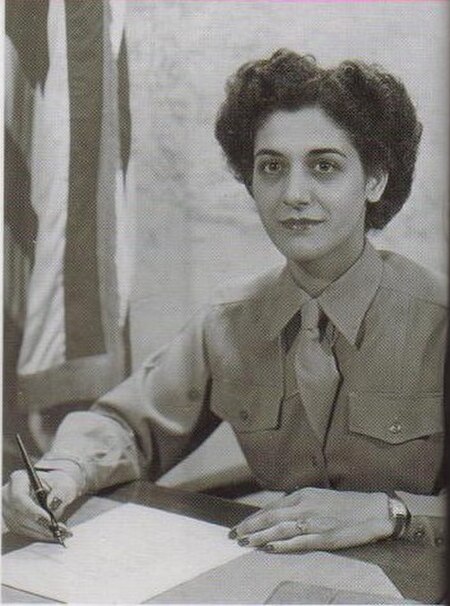Sue Sarafian Jehl
1917 births1997 deathsAmerican people of Armenian descentBurials at Arlington National CemeteryOperation Overlord people ... and 3 more
People from Maitland, FloridaPeople from Malden, MassachusettsWomen's Army Corps soldiers

Sue Jehl (née Sue Sarafian) (February 14, 1917 – April 13, 1997) was one of the best known Women's Auxiliary Army Corps (WAAC) personnel to serve the United States during World War II. She was one of the three personal secretaries to General Dwight David Eisenhower, serving him from January 1943 to April 1947.She was one of the first women from the Detroit area to enlist in the WAAC (established on May 14, 1942). Sarafian Jehl enlisted for the corps in July 1942. The WAAC provided secretaries, switchboard operators and cooks for the army.
Excerpt from the Wikipedia article Sue Sarafian Jehl (License: CC BY-SA 3.0, Authors, Images).Sue Sarafian Jehl
Roosevelt Drive, Arlington Courthouse
Geographical coordinates (GPS) Address Nearby Places Show on map
Geographical coordinates (GPS)
| Latitude | Longitude |
|---|---|
| N 38.876806 ° | E -77.070795 ° |
Address
General George C. Marshall
Roosevelt Drive
22214 Arlington, Courthouse
Virginia, United States
Open on Google Maps









